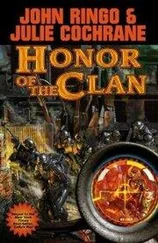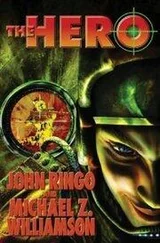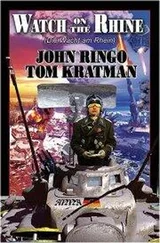The various generals at the table nodded, expressions dark with worry. The civilians looked scared. If they’d understood what Simon did, fear would’ve become stark terror. Nobody on Jefferson could even begin to comprehend what had happened at Etaine. Simon hoped they never did.
“So,” Simon cleared his throat and finished up his presentation. “We’ll maintain vigilance in all directions and do what we can to muster out and train local defense forces. We’ll coordinate defense of this whole region with Captain Brisbane and her SOL unit, as well. They’ve been posted to the Ngara system, with orders to guard the mining operations on Mali. The Malinese mines and smelting plants are a tempting prize, one the Deng will find hard to resist. I’m told a fair number of Jefferson’s young adults attend the big trade school on Mali? And the universities on Vishnu?”
President Lendan nodded. “We have some good schools here, but Jefferson’s higher education tends toward agricultural and biotech research, ag engineering and terraforming, civil engineering, that sort of thing. We have a thriving art and cultural degree program, but that doesn’t do us much good in a situation like this. Anyone wanting careers in pretty much anything else has to go off world for training, to one of the big universities on Vishnu. That’s where we send students and technicians for training in psychotronic circuitry, interstellar transport design, medicine and xeno-toxicology and other technical fields.”
“What about Mali?”
“We send a fair number of students — several thousand a year, in fact — for training at the Imari Minecraft Institute. Our most important industrial alloys are imported from the Imari Consortium, but we’re developing a pretty good mining industry that reduces our dependence on off-world imports. In return, the Imari Consortium and the smaller, independent operations are the best market we have for our surplus foodstuffs. Every human installation on Mali must be domed, so it’s cheaper for the Malinese to import bulk commodities like grain and beef, than to try producing them locally. We have a good treaty relationship with both of Ngara’s worlds.”
Simon nodded. One of his jobs was making sure it remained that way. There weren’t enough humans out this way to have two star systems bickering with each other, which could happen fast when attack on one world sent a domino-style ripple effect through a planetary economy, savagely reordering priorities. Now wasn’t the time to bring that up, however, let alone worry about it. Plenty of time to address that concern after the shooting stopped.
“One decision you face,” Simon said quietly, “is the need to decide whether to leave those students on Mali and Vishnu, which are farther from the immediate conflict and therefore potentially safer, or whether to call them home to defend Jefferson. If things go badly here, we may well need every able-bodied adult we can muster. Nor is there any guarantee that Vishnu and Mali will remain safe from attack, not with the dynamics of this conflict shifting so rapidly.”
Several men and women at the long table blanched, including most of the Defense Force officers. Simon was sorry for that, but saw no point in sugar coating anything. Most of them were facing the first real combat of their lives and they had abruptly realized just how unready they were for it. Good. People who knew the score were likelier to stretch themselves to meet the challenge. Now it was time to put the heart back into them by giving them something to do about it.
“All right,” he said briskly, touching controls to change the display so that Jefferson’s star system filled the dark holo-vid, “let’s get down to business, shall we?”
Kafari Camar stepped onto the broad sidewalk outside Madison Spaceport’s passenger terminal and drew down a deep, double-lungful of home. She always loved the smell of spring flowers and fresh-turned earth. The cool, wet wind on her face was particularly welcome, today. The crowded and odiferous space she and fifty-seven fellow students had shared for the past eleven days might have been the best accommodations available on an interstellar freighter, but they’d barely been liveable. Even the students used to Spartan housing on Mali had complained.
Most of the students were still in the terminal, busy off-loading duffles and sundry luggage, but Kafari had traveled light, as always. She carried even less than most of the students from Jefferson’s rural areas, having decided to leave nearly everything behind on Vishnu. Clothes could be replaced. She wouldn’t need most of her course disks again. The computer had belonged to the university and none of the trinkets decorating her dorm space had possessed sufficient sentimental value to burden herself with the job of carrying them. She had brought home nothing more than a shoulder pack and the contents of her pockets.
It wasn’t merely convenience that had prompted that decision. It was a survival habit, one that urban kids never seemed to understand, let alone master. Trying to travel with too much to carry, out in Jefferson’s wilderness — or even on terraformed ranches bordering wild land — was asking to be killed in any of several messy and painful ways. Jefferson’s wildlife was not always friendly. But she was so delighted to be home, she probably would have smiled even at a gollon , just prior to shooting its ten or twelve feet of teeth and claws and armor-tough scales.
Kafari tilted her face to the wet sky, relishing the rain soaking into her hair, but after tasting the sweet water of home for a happy moment or two, she shook back heavy braids that fell like dark rainwater to her hips, and shouldered her pack. Time to get moving. She crossed the rain-puddled sidewalk and was the first student to reach the rank of robo-cabs waiting at the curb.
“State destination,” the cab’s computer droned as she opened the door and settled herself on the worn cushions.
“Klameth Canyon landing field,” Kafari said, digging into her pocket even as the cab intoned mechanically, “Insert travel chit.”
She slid her card into the proper slot and the computer said, “Credit approved. Web yourself into seat.”
She tugged until the restraints clicked into place. The cab checked traffic control for clearance, then lifted smartly into the air, heading rapidly east toward the Damisi Mountains and home. She settled back to watch the scenery, but she was too keyed up to relax, and coming home was only part of the reason for it. The war news — and the tales pouring in from refugee ships landing at Vishnu — had grown so alarming, Kafari and many of her fellow students had decided to return home before things got worse.
Several families had contacted students via SWIFT, asking them to return, while others had begged their children to stay on Vishnu, since the Concordiat feared a Deng breakthrough at Jefferson. Kafari’s family hadn’t called. Not because they didn’t care, but because they trusted her judgment, and therefore didn’t want to waste the money a SWIFT transmission would cost. At twenty-two, Kafari had already survived more critical situations than most urban kids would experience in their entire lives. She’d carefully weighed the pros and cons of the situation unfolding beyond the Void and booked passage on the next ship out of Vishnu. At least, she sighed, peering down at the ground whipping past, she’d got here ahead of the Deng.
The cab had just veered north to bypass the restricted airspace over Nineveh Military Base when she saw it. Kafari sat bolt upright, eyes widening in shock.
“My God!”
It was a machine. An immense machine. A thing that dwarfed the very concept of machine. Even the largest buildings of Nineveh Base shrank to the size of children’s stacking blocks by comparison. And more terrifying, even, than its sheer size, it was moving . Things that big were part of the immovable landscape, or should have been. Yet this immense structure was mobile. Faster than her aircab, in fact. Deep gouges showed as triple scars in its wake. The customs officials at Ziva Station had told them a Bolo and its commander had arrived, but Kafari had not remotely imagined just how huge humanity’s most sophisticated engines of war really were.
Читать дальше











